Clovis, King of the Franks
Information on contents and insights (click here)
Were it not overshadowed by a colossus of history such as Charlemagne, the figure of King Clovis would be prominent throughout the historical period known as the Dark Ages. The historical perspective and the distance from us mean that Charlemagne is perceived by most as a contemporary of him although the two were separated by about three centuries and therefore this character of the utmost importance is much less celebrated than he deserves. In reality, the two figures of Frankish sovereigns are complementary in that not only one opens and the other closes the Dark Ages, but the second completes and concludes the work that the first had started without being able to finish it due to his early death and the apocalyptic events that prevented his immediate successors from doing so in turn. Charlemagne could not have existed without Clovis: without him there would have been no Kingdom of the Franks.
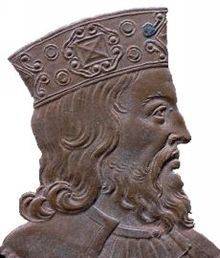
Clovis was at first similar to the other Roman-barbarian rulers: he inherits a "kingdom" totally devoid of institutions, laws and diplomatic relations, where his power is based solely on the tribal tradition of pre-eminence of his family, based in turn on legends passed down orally; in reality the minor kings at the head of the various tribes of the variegated tribal confederation of the Franks are largely independent, and initially accept nothing more than a simple formal pre-eminence. Clovis is crowned at only fifteen years of age, under the influence of a queen mother who is not a Frank herself and who pursues the pagan creeds and tribal laws of her people of origin - the Thuringians - even less civilized than the Franks themselves, which in turn are among the least civilized among the peoples permanently settled on the territory of the empire.
At the time of his coronation, Clovis is surrounded by enemies far stronger than him, inside and outside his kingdom. The Franks themselves are but a simple alliance of tribes traditionally linked together by the need of protecting themselves from other tribal confederations similar to theirs (such as the Alamanni) or from more advanced and militarily powerful barbarian domains (such as the Visigoths). The Franks are divided between Salian (descendants from the tribes settled in Lower Germany as foederati of the Empire) and Ripuarian (the set of tribes dwelling along the great Rhine and Meuse rivers, which never entered into imperial service), two not very homogeneous groups often hostile to each other, and split internally into smaller clans, where each leader aims to increase his own power rather than to respond to a sovereign without real authority.
Clovis inherits from his father little more than a town, a few hundred undisciplined warriors and a submissive and demoralized Latin people. Historical sources report very little of his first acts of government. Yet we know that only five years after he ascended the throne, Clovis leads a compact army - surprisingly well armed and equipped compared to his neighbors - to conquer the kingdom adjacent to his: he faces his enemies in a pitched battle, defeats them, quickly conquers first the capital and then all the other cities without meeting any resistance, and simply annexes the entire territory to his kingdom without anyone complaining. This, in a period in which wars between barbarian kingdoms normally are just but raids that stop in front of the city walls, which the barbarians are not equipped to besiege.
Clovis instead captures the cities and subdues the populations in a matter of months. Not only that: when the defeated sovereign flees to the powerful king of the Visigoths, Clovis demands his return, and promptly obtains it: a sign if not of fear, at least of the respect on the part of the most powerful barbarian king of the time towards his just twenty-year-old colleague.
We do not know what happened in those five years, when an adolescent king devoid of everything transformed a hodgepodge of heterogeneous tribes into a respected and powerful kingdom: the sources do not say. But whatever happened must necessarily be mainly due to the king himself.
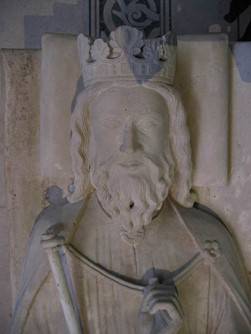
Clovis belongs to the Merovingian dynasty: today this name refers mainly to the "idle kings" of the following centuries, but at the time of Clovis it was a name wrapped in a mystical aura strictly connected to the pagan legends of the Teutonic peoples, dating back to the times when the Empire was strong and the Germanic peoples lived in the depths of the forests. The power of tradition was such that this dynasty had been able to act as a glue for the league of the Franks for over two hundred years, and commanded respect within the whole Teuton world, as one of the noblest lineages. The symbol of this barbaric nobility was their hair: tradition had it that family members were invariably endowed with very blond, smooth and flowing hair, which represented their power as much and more than a crown.
We do not know what this Merovingian blood had special, nor whether it had anything special at all; the fact stands that in five years a young boy who owns a small town becomes the undisputed ruler of northern Gaul and western Germany, creating the nucleus of what will soon become the Kingdom of the Franks. A state feared and respected by all barbarians, and that what remains of the Empire, far in the East, will come to consider its only ally in the West.
In the light of what has been said, the figure of Clovis emerges powerfully above that of his peers at the sunset of the V Century: he founded a kingdom practically from nothing, making it the dominant state in Europe and creating the conditions for the rise of a new Western Empire: that Holy Roman Empire ("Sacred" and Roman, as it will base its authority on the Church as well as on the legacy of Rome) from which all modern nations of Europe in one way or another descend.
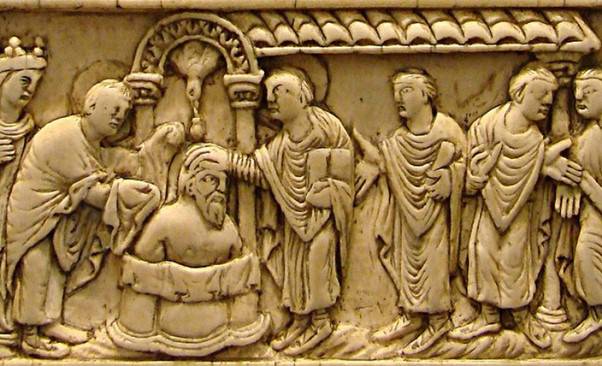
But, if the historical figure of Clovis is so important, why is he so relatively little known?
The shadow of Charlemagne only partially explains the phenomenon of Clovis eclipse: in reality the fundamental reason is the appalling lack of contemporary historical sources, due to the civil collapse of the West and the dramatic absence of chroniclers. The only contemporary historians worthy of this name live in the East and hardly know the existence of a Kingdom of the Franks. Clovis himself is illiterate, like all of his staff. The only exception is represented by Christian clerics, who however will take him into consideration only after his conversion. Even then, they will write (little and badly due to their own ignorance) keeping in mind the need to convert and indoctrinate and not to log events. In the end, the main source of information on Clovis is that Gregory of Tours, who lived over a hundred years later, whose purpose is more to evangelize the people than to educate them, and who will always try to put events in such a light to highlight divine power and the Church law.
Yes, the Church. Clovis ascends the throne as a pagan king, but will directly convert to the religion of his subjects, and this will probably be the secret of his strength. His will be called the Kingdom of the Franks, but the Franks proper, Salian or even Ripuarian, will represent but a small minority among his people, mainly of Latin language and Christian-Nicene religion. Adopting the religion of the majority and pushing his own people of origin to convert will naturally create a bond with the population that no barbarian king will ever be able to impose by force, however ruthless he might be.
In truth, all other barbaric kingdoms will disappear from history in the space of a few decades, while that of the Franks will prosper and expand to give birth one after the other to all the great nations of Europe.
Franks will become - together with Latins (by language) and Christians (by religion) - the term with which Europeans will be known to other peoples for almost a thousand years. Still in 1500 when the Portuguese will look out into the Indian Ocean and their fleets, rounded the Cape of Good Hope, will overwhelm Arab trade to India, the defeated Muslims will refer to them as the Franks.
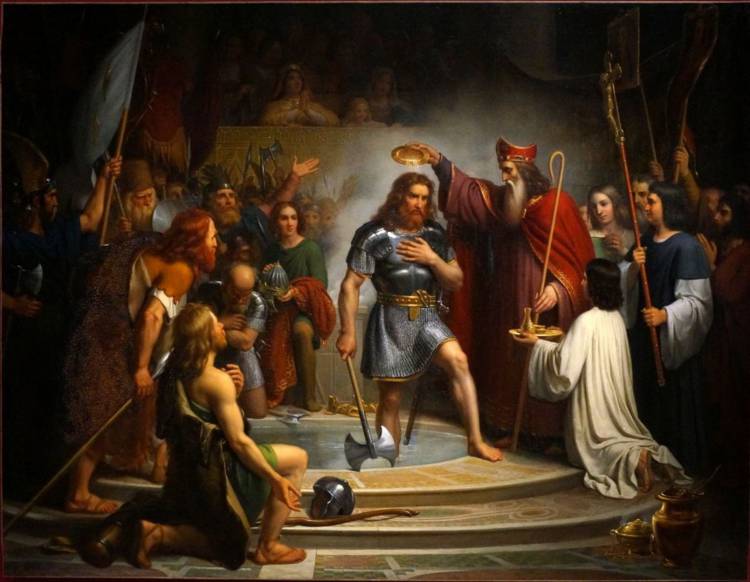
Clovis is the first Christian king of Europe. Before him there was just Rome, and the rulers of a number of invading barbarian peoples. He is the first to have a Christian people who see him as their own king and not an invader, and he is the first to forge the embryo of a nation in the heart of Europe, based on a territory, a population and a set of laws and well-defined customs, all of them Roman in origin.
For centuries the legacy of Charlemagne (and therefore of Clovis as the founder of the Kingdom that Charles will inherit) has been disputed between France, Germany and Italy, where each nation rests its claim on territorial, toponymic, linguistic, legal or cultural bases, with varying degrees of reasonableness. The reality is that the Kingdom of the Franks - ruled by barbarian kings but based on a Latin population, a Christian religion and a Roman law - is the seed from which the modern nations will grow. The Frankish people themselves, and the Salian Franks in particular, spread throughout Europe transforming themself into the warrior aristocracy at the origin of feudalism, and diluted their blood in the people of the whole continent. Even today the descendants of the great aristocratic families use to give their children names different from those of the majority of the population, such as Ludwig, Thierry or Carlo Alberto, often without knowing that by doing so they claim a descent from the Salian leaders that Clovis assigned to rule over the territories he conquered.

Clovis is also the basis of the Lex Salica, that crude juridical corpus from which the dynastic laws of all Europe descend, and which in many ways is the basis of the social organization of the whole Middle Ages and beyond: a set of uses, customs and habits that often are handed down to us, for better or for worse... Including the brutal squeeze of women's rights.
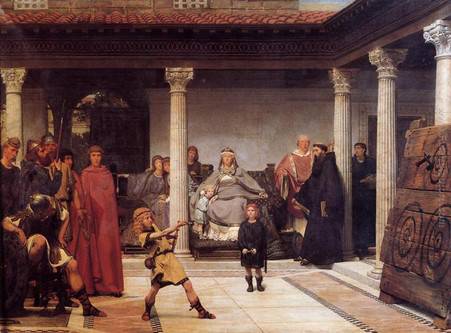
Basically, we know very well the consequences of what Clovis did, we have a reasonable idea of the chronological sequence of the main events of his reign, but we practically have no idea how he achieved what he did.
And that's what makes his character so intriguing, if not thrilling...
In developing his character, I tried to take into account all the confirmed historical details that I could find, as well as the unconfirmed but plausible ones, and I tried to connect them by matching them with what we know about his contemporaries and the general scenario in which he operated.
We know practically nothing of Clovis's court, if not some details of the priests who worked in his service; we know of his family only what has been handed down to us as positive or negative examples in the context of an overall religious vision of history, and therefore there is ample space to outline characters and events to fill the gaps left by the historical chronicle around Clovis: because clearly, he can't have done it all by himself.
The courts of the barbarian kingdoms were simplified copies of the latest Ravenna government, and essentially identified three primary functions: diplomatic, economic and military, which were respectively delegated to the king's waiter, cupbearer and farrier. This is because the ruler was literally seen as the owner of the kingdom, and service to his person and to the kingdom were considered the same thing. Thus, we have the fundamental titles of Camerlengo, Seneschal and Marshal. In the V Century the figure of the Magister Officiorum had no immediate correspondent in the barbarian kingdoms outside Italy (where this office survived the deposition of Romulus Augustulus), precisely because from the point of view of the Teutonic kings this would have diminished the sovereign power: the Master of the Palace was still to come.
We do know, however, that all barbarian kings were aware of the power of the Church over their Latin subjects, and therefore there was also an intermediary figure between them (whether Aryans or pagans) and the pre-existing ecclesiastical hierarchy on their territories: the difference between Clovis and his "colleagues" was that instead of limiting himself to containing - or even opposing - this hierarchy, he found a way to use it to increase his power. There were many ways in which the ecclesiastical hierarchy, once co-opted, could support the sovereign: representation of the humblest classes, tax collection, cultural support (the priests remained the only ones able to communicate by post) and information... Of course, this support had a price, which consisted in an increased influence of the clergy within the kingdom: an influence that would eventually lead to the conversion of the sovereigns and their peoples to the religion of their Latin subjects.
This is the period in which the foundations of feudalism and the entire economic, social and military structure of the Middle Ages were laid. The characters who held offices in the reign of Clovis are not known to us, but their work will influence the future of Europe for better or for worse for over a thousand years to come; considering what they had at their disposal - that is, almost nothing - we must admit that they did an excellent job.
Thanks to the Church and the need on the part of its literate exponents to promote Christian doctrine, we know the marriage story of Clovis and how this contributed to his own and his people's conversion, but probably for the same reason we know nothing of his first partner, the mother of his firstborn son; we only know that she existed, she raised a capable son and did not create problems with the arrival of a queen considered appropriate by blood and religious faith by the ecclesiastical hierarchy. The drawing of this figure therefore remains free, and I have decided to give it a Roman identity to help explain the surprising ease with which the very young Clovis manages to win loyalty and sympathy from his Latin subjects.
But what was the man Clovis like? What was his character, beyond the undoubted capabilities that his actions suggest he possessed?
Gregory of Tours describes him to us as ambitious, strong-willed, intelligent, astute and completely unscrupulous. Basically, a barbaric king like the others, only much more capable and perhaps even fortunate.
I tried to stick to this fundamental profile, enriching it with details and peculiarities compatible with his actions and with the context in which he found himself operating. Obviously, he is not very religious or superstitious, given how easily he gives away the traditions of his people, has no problem getting his hands dirty as specified by the episodes in which he appears to personally carry out the executions of his enemies, and is quick to make important decisions, given that almost regularly he prevents his opponents by completely displacing them.
I also chose to relate the harshness of the Lex Salica towards women not only to a passive acceptance of the Church influence, but also to a misogynistic trait of character, itself due to Clovis experience with his own mother and sisters: this leaves a lot of space to family drama that enrich the story.
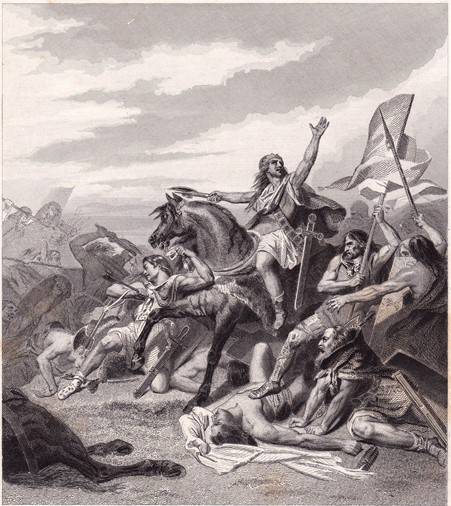
To avoid making him an excessively dominant character, I also surround him with loyal and capable associates, and therefore I endow him with the charisma and humanity necessary to attract the fidelity and friendship of these people who would hardly spend themselves on a tyrant or a sovereign unable to inspire loyalty.
In the end, the portrait emerges of a one-piece king, capable, as Kipling says, of playing everything in a single hand of dice; one who, despite the lack of consideration by most historians, is one of the most important historical figures in the European history.
Actually, on closer inspection, the Clovis - Charlemagne binomial is just as fundamental for our history as that of Julius Caesar - Octavian Augustus: because if the latter are the basis of Western civilization, the two Frankish sovereigns are the same for the European society.
Without them we would not have our modern nations.
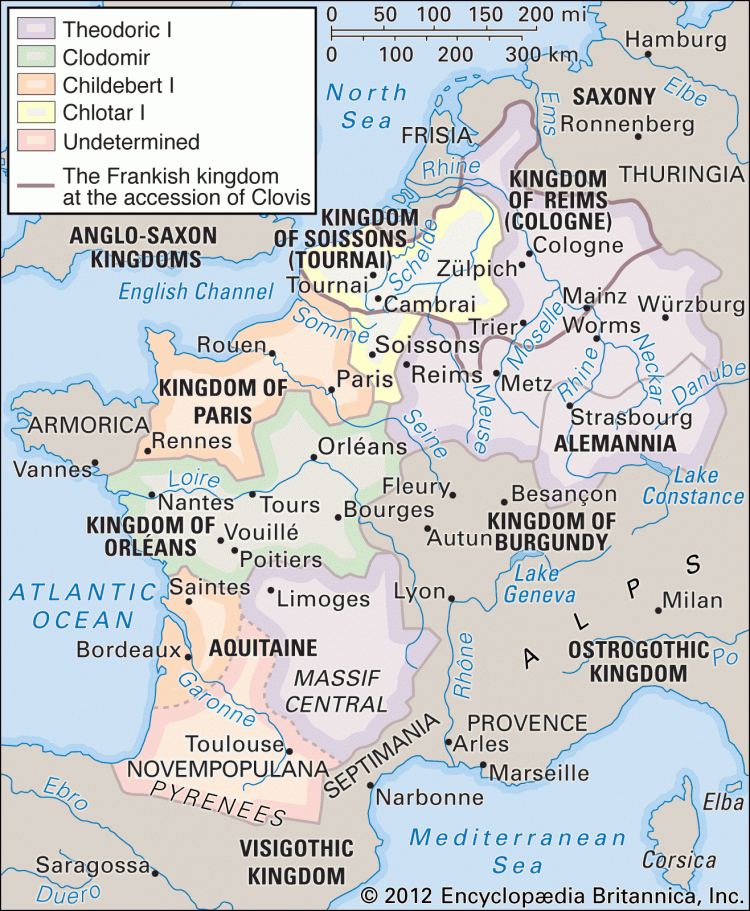





 Admin
Admin 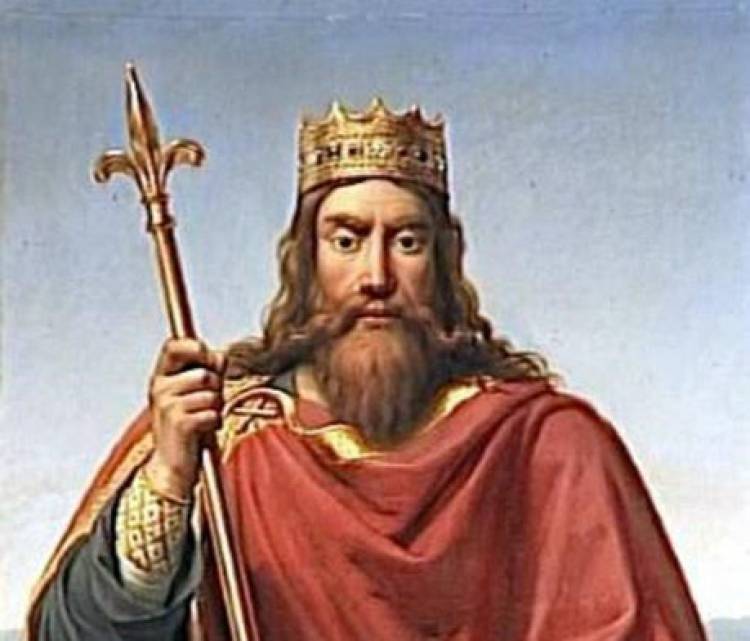
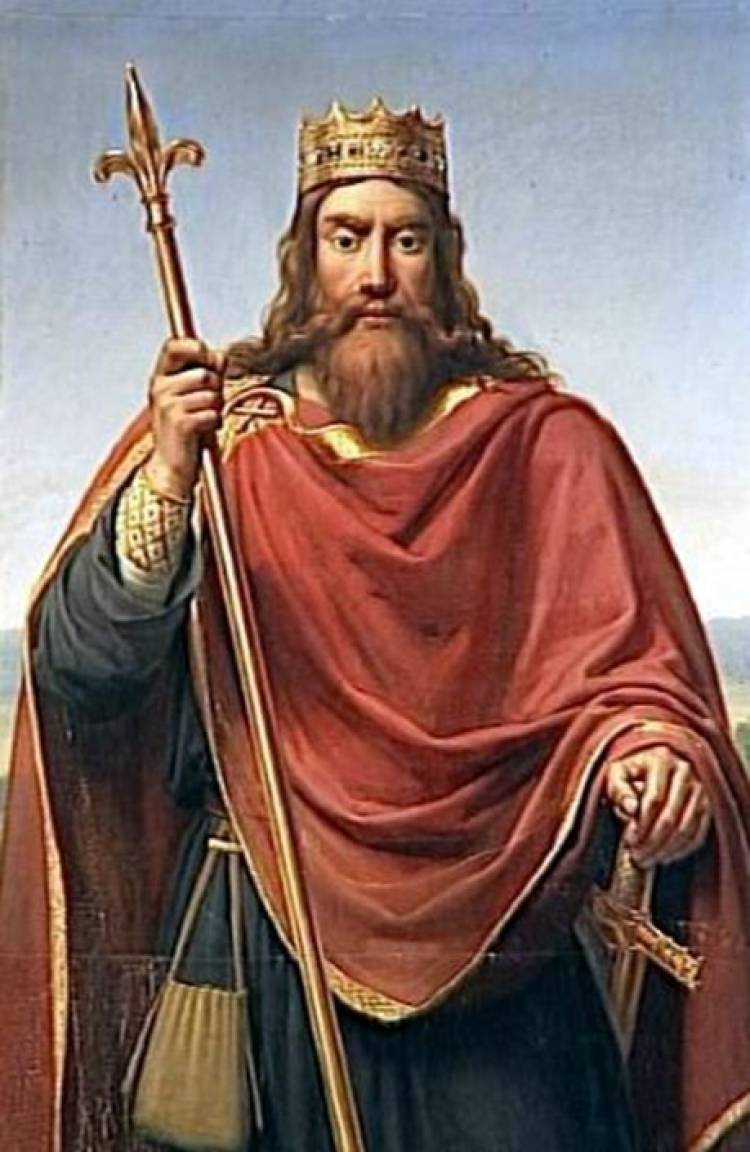
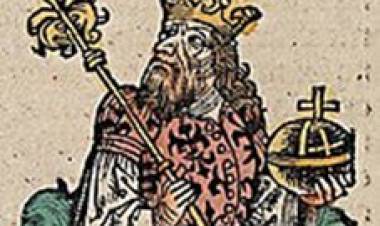
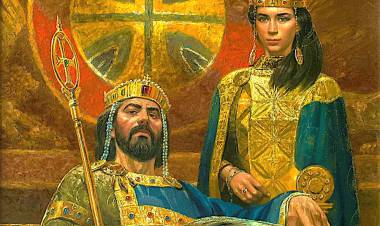
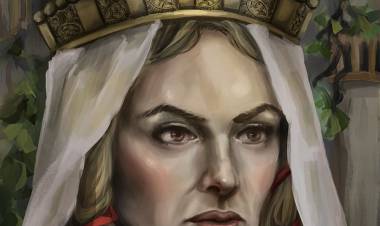










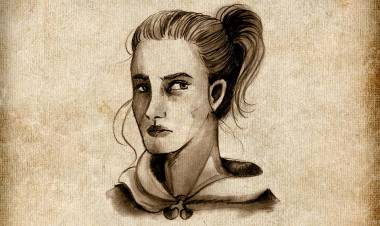
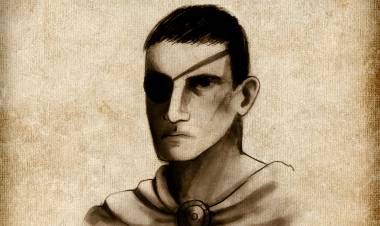
Comments (0)
Facebook Comments (0)